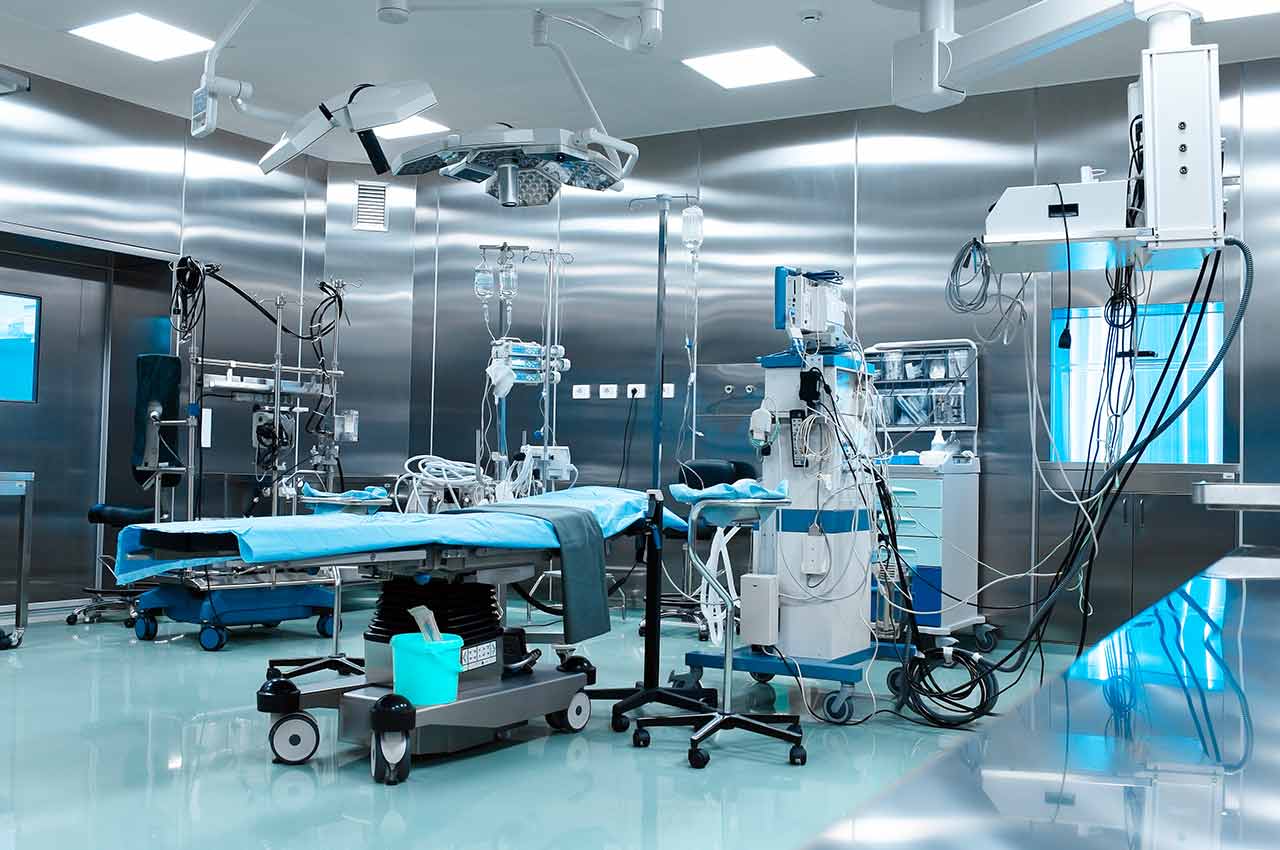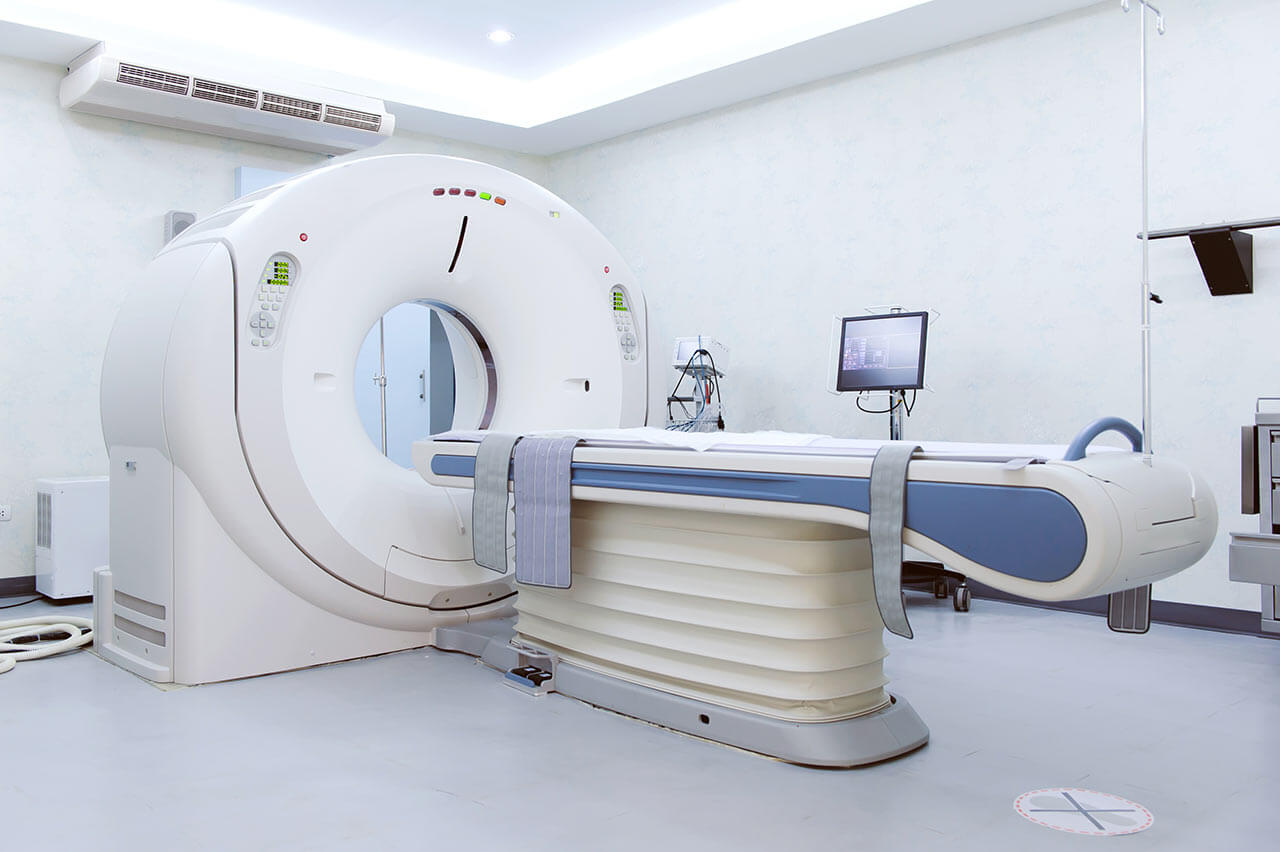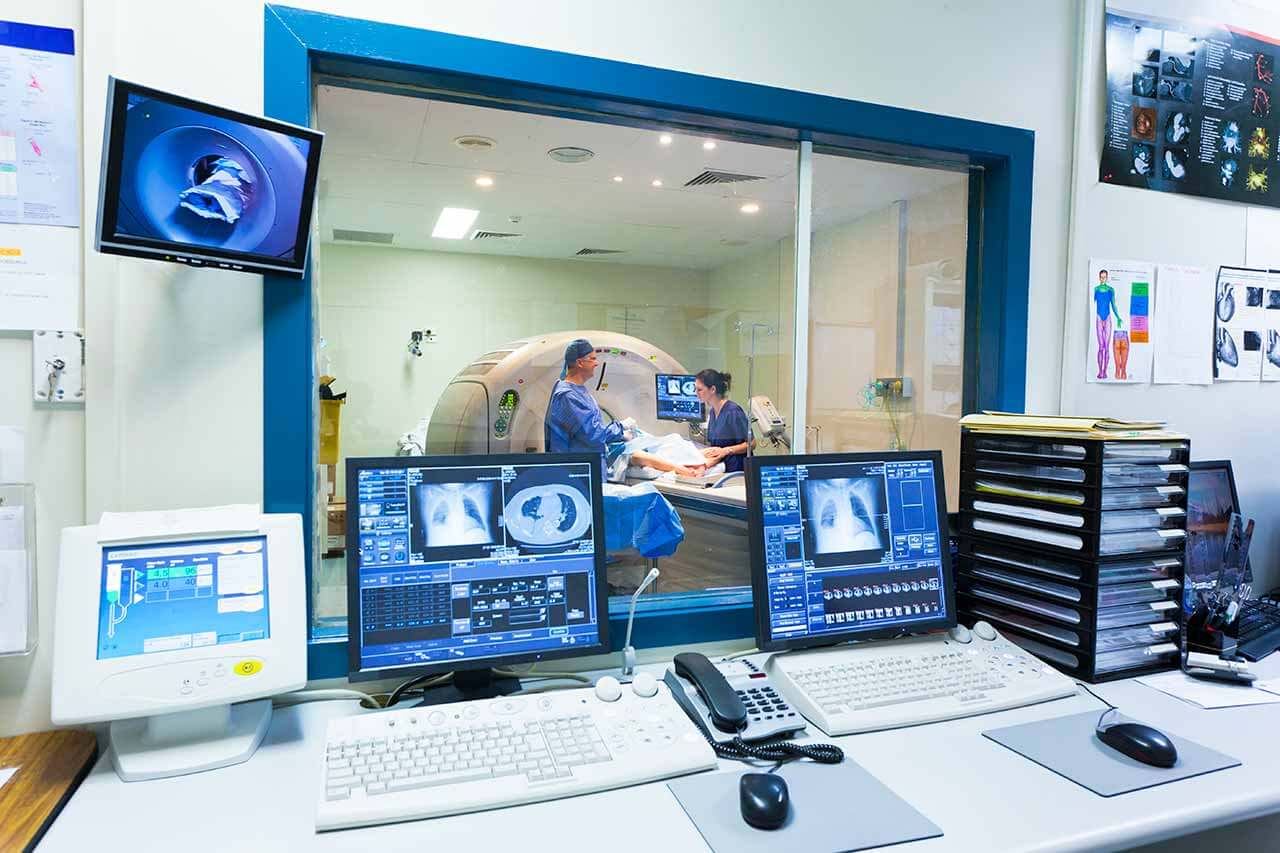
The program includes:
- Initial presentation in the clinic
- clinical history taking
- physical examination
- review of medical records
- laboratory tests:
- complete blood count
- general urine analysis
- biochemical analysis of blood
- TSH-basal, fT3, fT4
- indicators of inflammation (CRP, ESR)
- indicators blood coagulation
- thyroid and parathyroid ultrasound
- thyroid scintigraphy
- preoperative care
- strumectomy
- histologically and immunohistochemically
examination of the remote tissues - symptomatic treatment
- control examinations
- the cost of essential medicines and materials
- nursing services
- nutrition recommendations
- full hospital accommodation
- explanation of future recommendations
Required documents
- Medical records
- Thyroid ultrasound (if available)
- Biopsy results (if available)
Service
You may also book:
 BookingHealth Price from:
BookingHealth Price from:
About the department
According to the Focus magazine, the Department of General and Abdominal Surgery at the University Hospital Frankfurt am Main ranks among the top German departments specializing in bowel cancer treatment!
The department offers the full range of classical and minimally invasive methods for the treatment of common surgical diseases, cancer pathologies, diseases of the endocrine organs, proctological problems. The specialization also covers transplant surgery (liver, kidney and pancreas transplantation). The department is certified by the German Cancer Society for its outstanding results in the treatment of bowel, pancreatic, stomach and liver cancers. The Chief Physician of the department is Prof. Dr. med. Wolf Bechstein.
As part of the Interdisciplinary University Cancer Center, the department has all the necessary resources to provide comprehensive and customized treatment of oncological diseases using all conventional and innovative therapeutic options. In particular, the department's surgeons are experts in the treatment of liver metastases.
The main clinical focuses of the department include:
- Diagnostics and surgical treatment of esophageal, stomach, liver cancers, including metastases in the liver, pancreatic, rectal, as well as thyroid and parathyroid, adrenal cancers, abdominal sarcomas
- Diagnostics and surgical treatment of gastrointestinal diseases
- Minimally invasive resection of the cecum, gallbladder, liver, stomach, colon, pancreatic tail, spleen, kidney (for transplantation from a living donor)
- Liver, kidney and pancreas transplantation
- Thyroid, parathyroid and adrenal surgery
- Hernia repair
- Surgical treatment of proctological diseases
- Surgery in complex problems
- Other medical services
Curriculum vitae
Prof. Dr. med. Wolf Bechstein is a German surgeon. His clinical focuses include immunosuppression after organ transplantation, treatment of chronic transplant rejection, prevention of hemorrhages during liver transplantation and surgical treatment of neuroendocrine tumors of the gastrointestinal tract.
The doctor received his medical education at the Hannover Medical School (1977 - 1983) and at the Imperial College School of Medicine in London (1980 - 1981; grant from the German Academic Exchange Service). On October 28, 1983, he passed State Medical Examination (Examination Commission of Lower Saxony), and on November 10 of the same year he was admitted to medical practice (Medical Association of Lower Saxony). In 1984, he defended his doctoral thesis on the subject: "Hemorrhage due to the knee joint injury in severe type of hemophilia A" (1979 - 1982 hemophilia research).
In January 1984, Wolf Bechstein began his professional career in the Department of Anesthesiology at the Hannover Medical School. Only a year later, in 1985, he moved to the Department of Abdominal and Transplant Surgery at the Hannover Medical School.
In August 1988, Bechstein became a doctor in the Department of Surgery at the Charite University Hospital Berlin (now the Department of General and Transplant Surgery), Campus Virchow. Some time later, he simultaneously worked at the Medical Faculty of the Humboldt University of Berlin. In 1990, Prof. Bechstein went to the University of Wisconsin in the United States for one year (German Research Foundation Scholarship).
In April 1992 he held the position of the Senior Physician, and in November of the same year he became a Surgeon of the Berlin Medical Association. In 1993, he held the position of the Senior Physician. One year later he had his habilitation at the Free University of Berlin. Since 1998, he has worked as Senior Physician (his activities were mostly focused on abdominal surgery). On September 4, 2000, he was appointed as Head of the Department of Surgery at the Bochum-Langendreer Clinic (Knappschaftskrankenhauses Bochum-Langendreer). On November 14, 2000, Wolf Bechstein was appointed as Professor of the Faculty of Medicine at the Humboldt University of Berlin.
Since August 1, 2002, he has been holding the position of the Chief Physician in the Department of General and Abdominal Surgery at the University Hospital Frankfurt am Main.
Photo of the doctor: (c) Universitätsklinikum Frankfurt
About hospital
According to the reputable Focus magazine, the University Hospital Frankfurt am Main ranks among the top German medical facilities!
The hospital was founded in 1914 and today is a well-known German medical facility, which combines rich traditions and scientific innovations. A medical team of more than 6,500 employees cares about the health of patients around the clock, ensuring them with the highest standards of medical care and best possible safety.
The hospital has 32 specialized departments and more than 20 research institutes, which have all the necessary resources for the provision of the most effective care for any patient. The hospital has 1,488 beds for inpatient medical care. The medical facility diagnoses and treats more than 51,000 inpatients and about 44,800 outpatients every year. Due to the demonstration of outstanding treatment results, the number of patients seeking medical care here increases significantly annually.
The hospital presents all areas of modern medicine, whereas its special competence lies in neuroscience, oncology, cardiovascular medicine, cardiac surgery and other fields. Many treatment methods available here are unique not only in Europe, but also internationally.
Photo: (c) depositphotos
Accommodation in hospital
Patients rooms
The patients of the University Hospital Frankfurt am Main live in comfortable rooms made in modern design and meeting the highest standards of European medicine. Each room is equipped with an ensuite bathroom with a toilet and a shower. The standard room includes a comfortable, automatically adjustable bed, a bedside table, a wardrobe, a table and chairs for receiving visitors and a TV. If desired, patients can use Wi-Fi. The patients can also stay in the enhanced-comfort rooms.
Meals and Menus
The patient and his accompanying person have a daily choice of three menus. If for any reason you do not eat all the food, you will be offered an individual menu. Please inform the medical staff about your dietary preferences prior to the treatment.
Further details
Standard rooms include:
Religion
Religious services are available upon request.
Accompanying person
During the inpatient program, an accompanying person may stay with you in a patient room or in a hotel of your choice.
Hotel
During the outpatient program, you may stay in a hotel of your choice. Managers will help you choose the most suitable options.






